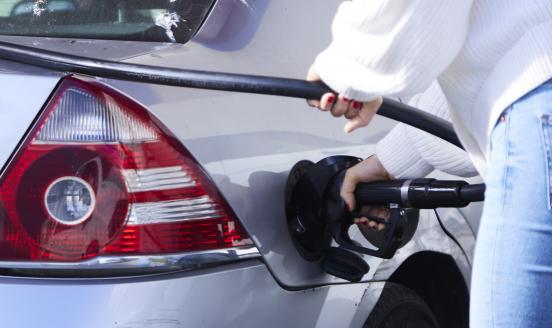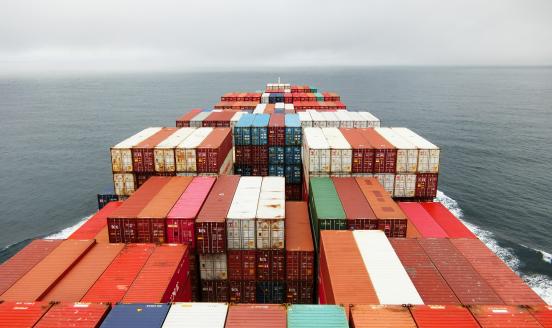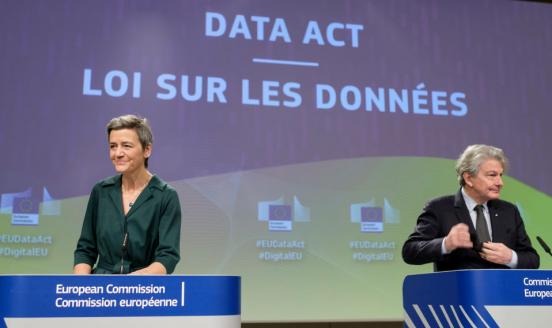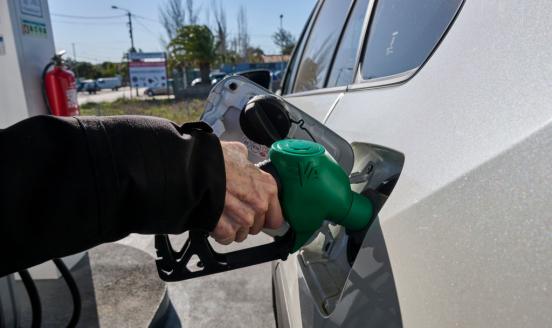
Bruegel Blog (archive)
Timely analysis on the latest developments in economic policy. The Blog is a point of reference for policymakers, influencers and journalists.
Recently published

The fiscal side of Europe’s energy crisis: the facts, problems and prospects
Europe needs to move beyond emergency fiscal responses and focus on structural changes to allow the EU to accelerate its decoupling from fossil fuels.

Is Europe failing on import diversification?
Despite a goal of economic self-reliance, the European Union’s imports are generally sourced from an increasingly limited set of suppliers.

The difficulty of designating gatekeepers under the EU Digital Markets Act
The European Commission should be more precise and transparent when designating gatekeepers under the European Union’s Digital Markets Act.

Europe’s half a million barrels per day diesel supply question
A new European Union embargo on Russian oil products should not affect EU diesel supplies and prices, but could encourage re-routing by Russia.

Web3: the next internet revolution
Tokenisation based on blockchain technology could bring radical changes to markets for goods and services.
Blog post
26 September 2022
Do LGBTQIA+ people face EU labour market discrimination?
Labour-market data on LGBTQIA+ people is limited, but there is some evidence that those in same-sex partnerships experience discrimination.
Blog post
22 September 2022
Tackling inflation: learning from the European Central Bank's six lapses
While mistakes unduly constrained rate hikes, gradual tightening is the right approach along with a new instrument to address energy bottlenecks.
Blog post
15 September 2022
Shinzo Abe’s economic legacy: a glass half full
Abenomics has fallen short in many ways, but Japan has still largely coped with an aging society while maintaining a high level of income equality.
Blog post
12 September 2022
Cross-border telework in the EU: fab or fad?
Europe should investigate the possibility of ‘digital frontier worker’ status for cross-border remote workers.
Blog post
12 September 2022
How effective has the pandemic emergency purchase programme been in ensuring debt sustainability?
The ECB’s pandemic emergency purchase programme has improved substantially the debt dynamics of euro-area countries, with durable effects.
Blog post
08 September 2022
Russia’s huge trade surplus is not a sign of economic strength
Russia has recorded a record trade surplus, but more than half of its increase is due to the collapse of imports.
Blog post
20 July 2022
Closing the gender gap for self-employed women in the European Union
Self-employed women are at a wealth disadvantage, according to ECB household finance data, and thus have more to gain from policies that spur saving.
Blog post
18 July 2022
What role for China in the global refining crunch?
Despite high prices, China’s substantial spare oil refining capacity remains restricted.
Blog post
13 July 2022
A possible G7 price cap on Russian oil: issues at stake
A price cap on Russian oil might improve the current western sanctions regime, but effectiveness will depend on the west’s willingness
Blog post
13 July 2022
Can working solo be good for entrepreneurs?
The self-employed are a diverse group, but they can help us better understand the drivers of well-being at work and help design better policies.
Blog post
07 July 2022
European Union demand reduction needs to cope with Russian gas cuts
Without Russian gas, the European Union would have to reduce demand by approximately 15%, with big differences between different parts of Europe
Blog post
06 July 2022
Mobilising EU investors to narrow the developing-country climate-finance gap
The EU needs to address through public and private funds the lack of private climate finance to low- and middle-income countries.
Blog post
05 July 2022
How rate increases could impact debt ratios in the euro area’s most-indebted countries
Debt-to-GDP ratios should continue to fall in euro-area countries despite rising interest rates, post 2023 the situation might vary across countries
Blog post
29 June 2022
The implications for public debt of high inflation and monetary tightening
Expected increases in interest rates and reductions in real GDP growth rates will result in relatively small increases in public debt-to-GDP ratios.
Blog post
23 June 2022
A new kind of Belt and Road Initiative after the pandemic
The Belt and Road Initiative is turning from infrastructure financing into an instrument for Chinese soft and hard power.
Blog post
22 June 2022
Discretion lets Croatia in but leaves Bulgaria out of the euro area in 2023
Crucial decisions about whether a country can join the euro area depend on questionable discretionary decisions.
Republishing and referencing policy
Bruegel considers itself a public good and takes no institutional standpoint. Anyone is free to republish and/or quote any of our posts without prior consent. Please provide a full reference, clearly stating Bruegel and the relevant author as the source and include a prominent hyperlink to the original post.
Republishing and referencing policy
Bruegel considers itself a public good and takes no institutional standpoint. Anyone is free to republish and/or quote any of our posts without prior consent. Please provide a full reference, clearly stating Bruegel and the relevant author as the source and include a prominent hyperlink to the original post.